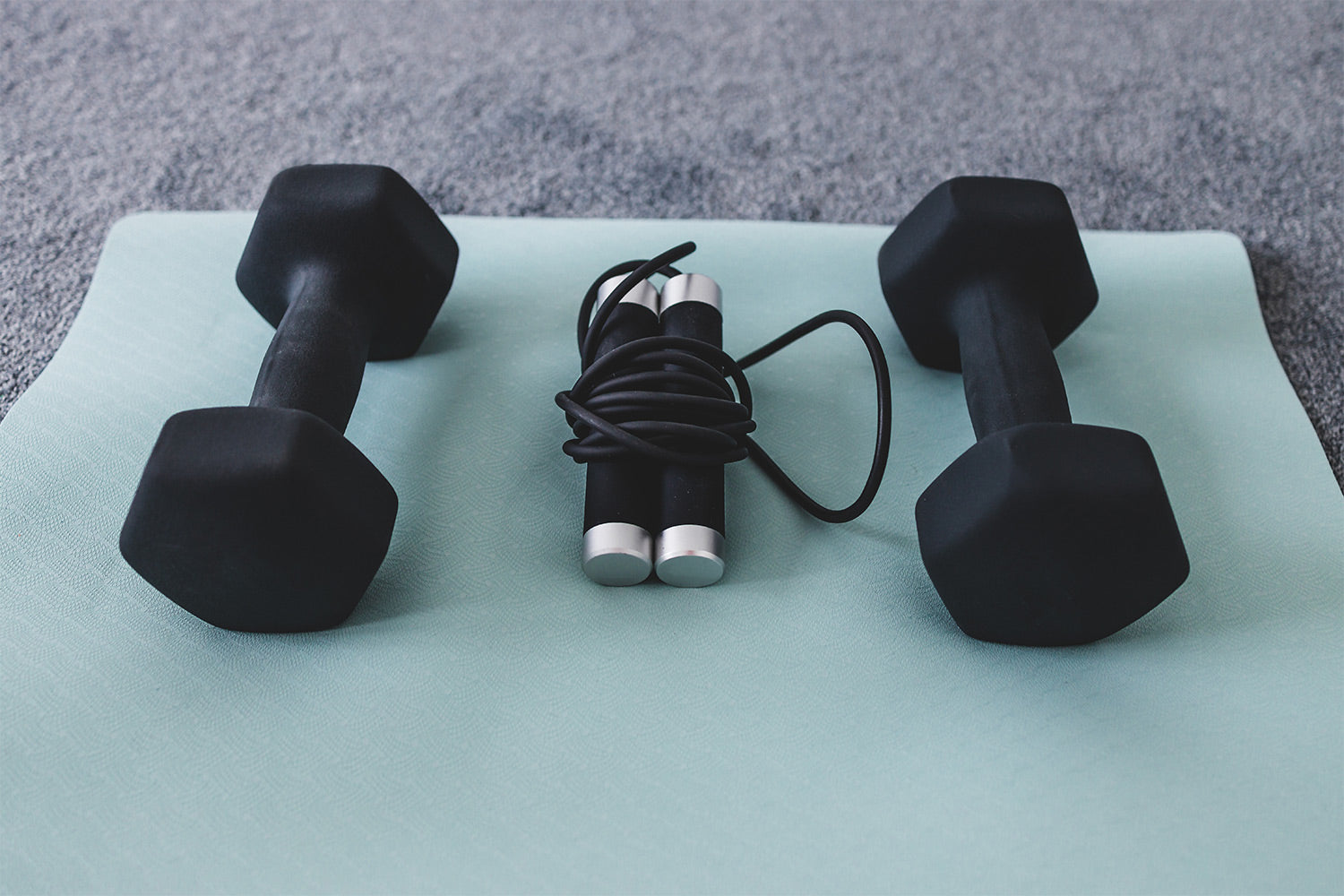Finding the right pre-workout supplement is only part of the equation. You also want to make sure you’re taking it at the right time. That’s because taking your pre-workout too early or too late can hinder your exercise routine (and even affect other parts of your life!).
To discover when to take pre-workout, read this guide from EnergyFit on everything you need to know about this important supplement.
What’s a Pre-Workout?
A pre-workout is a supplement that’s meant to improve your exercise performance and—in some cases, stimulate muscle growth and recovery. Typically, athletes use pre-workout supplements to power through intense workouts such as weight-lifting and high-intensity interval training.
With the variety of pre-workout supplements on the market, you can find anything that suits your needs. Whether you want something that tastes delicious and gives you that coveted muscle pump, or a sugar-free supplement that gives you a modest increase in energy, there’s something out there for everyone.
While there are potential side effects to taking pre-workout, be sure to take the recommended dose and watch your tolerance.
Keep reading to find out the ingredients that go into a pre-workout and which ones are best for your goals.
Common Ingredients In Pre-Workout
Knowing the effects of pre-workout ingredients is important in helping you choose the right one for you. While the combinations of ingredients vary widely, most pre-workout supplements contain at least some of the following:
1. Caffeine
Caffeine is typically one of the main ingredients in most pre-workouts. Why? Because it’s one of the best ways to get a quick energy boost to power through your workouts. Plus, caffeine has been shown to increase blood flow to the muscles, improve concentration, and increase your mood—all of which we want during our workout sessions.
While you may get caffeine from your morning cup of coffee, the dosage in pre-workout supplements is much higher. It’s not uncommon for pre-workout supplements to have 300 milligrams of caffeine—the equivalent of three cups of coffee! So, if you’re sensitive to caffeine, make sure to pick a pre-workout supplement that has a lower amount of it.
2. BCAA
Otherwise known as branched-chain amino acids, this ingredient contains the amino acids leucine, isoleucine, and valine. These amino acids are essential for preventing the breakdown of muscle tissue while simultaneously helping muscles repair and grow—especially after strenuous workouts.
These essential amino acids are not produced naturally by the body, which is why it’s important to get them from outside sources, such as pre-workout supplements (however, getting them from your diet works just as well!).
3. Beta Alanine
Beta-Alanine works by reducing lactic acid buildup in your muscles—a primary cause of muscle fatigue. This allows you to train for a much longer period than you otherwise would.
However, one of the downsides of beta-alanine is that it causes a tingling sensation in your hands and feet due to increased blood flow. Although this doesn’t bother some people, it’s important to experiment with this ingredient and—if needed—to avoid it in your pre-workout supplement.
4. Creatine Monohydrate
Creatine monohydrate is a substance found naturally in your body and has many similarities to the amino acids that help you build muscle. However, when you work out, your reserves of creatine monohydrate can get depleted. This is where supplementation comes in.
When you take creatine monohydrate, you increase your body’s adenosine triphosphate (ATP) production, which drives many of the body’s energetic processes. While the process behind it isn’t as important, it’s vital to know that the more ATP your body makes, the better your body can perform during exercise.
In addition, creatine can also help with muscle recovery after intense workouts. For this reason, it’s a very important ingredient in pre-workout supplements.
5. Vasodilators
There are many types of vasodilators. However, their purpose is to increase blood flow to your muscles during exercise.
Vasodilators accomplish this by “opening” your blood vessels, allowing more blood to flow through them, and reaching your muscles quicker. As a result, you can keep pushing longer throughout your workout without getting fatigued.
6. Nitrate
Nitrate salts are a common ingredient in pre-workout supplements. When your body absorbs them, they break down into nitric oxide, improving blood circulation. This helps your body deliver oxygen (amongst other nutrients) to your muscles more efficiently. Keep in mind that nitrate is often labeled as beetroot extract.
7. Beta-Alanine
If you suffer from muscle cramps, then beta-alanine may just be the ingredient to help you.
Beta-alanine is an amino acid that your body makes on its own. Increasing the levels of carnosine in your muscles can buffer their pH levels and decrease lactic acid buildup. If you’re into endurance cardio, this is an essential ingredient, such as rowing.
8. B Vitamins
B vitamins are a group of vitamins that help with workout performance and your overall health.
B vitamins are great for your mood, which can help you in your workouts (and beyond). In addition, they help with building muscles, regulating cholesterol production, and supporting gut health. Plus, they’re water-soluble vitamins—this means that if you take too much, your body will easily get rid of it without any side effects.
9. Sugar
While you may want to avoid sugar for the most part, sometimes this ingredient can give you a much-needed boost of energy to fuel your workouts. That’s because glucose (A.K.A. sugar) is your body’s preferred source of energy. Muscles can quickly break down and use it for high-powered workouts.
While we don’t recommend taking pre-workout with sugar every day, some intense weight lifting sessions can benefit from sugar and greatly improve your performance.
The Importance of Taking a Pre-Workout at the Right Time
To get the most out of your pre-workout, it’s important to take it at the right time. Here are three reasons why this is the case:
1. It Will Optimize Your Energy
Since your pre-workout is very likely to contain caffeine, you want to take it at the right time. That’s because caffeine begins to take effect within 20 minutes of being ingested and can peak shortly after. For this reason, you want to take your pre-workout supplement as close to the workout as possible—especially if your workouts tend to be on the longer side.
2. You Avoid a Caffeine Crash
The high caffeine content in most pre-workout supplements can cause you to crash several hours after you take it.
So, if you take your pre-workout too early, you can begin to lose energy during the actual workout. To avoid a dip in energy, make sure you’re not waiting too long to start exercising after taking your pre-workout.
3. You Can Prevent Sleep Problems
On the other hand, taking your pre-workout too early is taking it too late in the day. While some people are more sensitive to caffeine than others, it’s still a stimulant that can keep you up at night.
Since caffeine has a half-life of three to five hours (which means it takes this long to get half of it out of your body), you want to make sure you’re taking it at least three hours before you wind down for the night. Otherwise, you might have trouble falling and staying asleep.
When Is the Best Time to Take a Pre-Workout?
For all of the above reasons, it’s a good idea to take your pre-workout as close to your workout as possible—while still giving it time to take effect. If you start your workout with a light warm-up, it’s totally fine to take your pre-workout almost immediately before exercising.
But if you want to hit the gym and get to work right away, then you might want to take your pre-workout supplement at least 20 minutes before you start exercising. This will allow the caffeine (and possibly sugar) to reach its peak in your body so you can hit the ground running.
Of course, it’s important to consider dosage, as well. Although most package instructions say to take one full scoop of pre-workout supplements, you might want to first experiment with a smaller amount.
If you experience any side effects such as nausea, jitters, or headaches, then you might want to stick to a lower dose of the pre-workout. And it’s never a bad idea to check in with your doctor before taking any new supplements.
Optimize Your Workout Performance
Taking your pre-workout supplement at the right time is crucial for optimizing your performance. If you take it too early, the effects might wear off by the time you start exercising. If you take it too late, it might not kick in during your workout and can even give you issues with sleep.
Whether you want to give your nutrition a boost, increase muscle mass, target weight loss, or combat muscle soreness and exhaustion, it might be worth it to look into a pre-workout and whey protein supplement.
When you start to take supplements, we recommend taking a pre-workout supplement 30 minutes before your workout in the morning or afternoon. And if you’re sensitive to caffeine, it’s a good idea to avoid it too close to bedtime. Whenever you choose to take it, a pre-workout supplement is a great way to enhance your performance—especially during your most intense workouts.
Sources:
Acute Effects of Nitrosigine® and Citrulline Malate on Vasodilation in Young Adults | NCBI
The Muscle Pump: Why Your Muscles Look Bigger During Workouts | CNET





Leave a comment
All comments are moderated before being published.
This site is protected by hCaptcha and the hCaptcha Privacy Policy and Terms of Service apply.